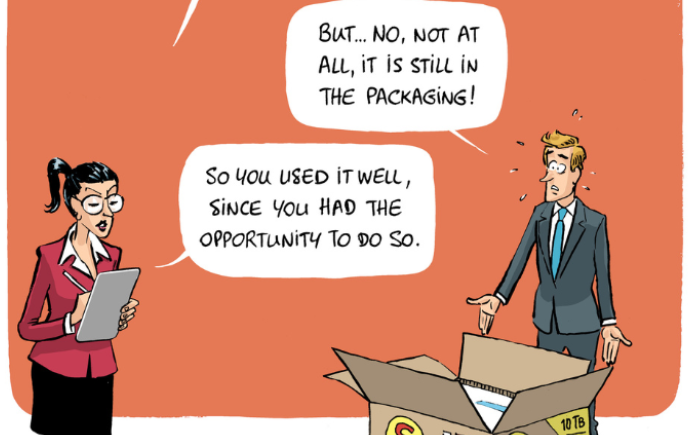Fair Principle 4: Contractual terms and conditions shall be clear and unambiguous. They shall not be unilaterally changeable.
Fair Principle 4: Contractual terms and conditions shall be clear and unambiguous. They shall not be unilaterally changeable.
 donderdag 14 juli 2022 09:00
donderdag 14 juli 2022 09:00 Business users associations Beltug, Voice, Cigref and CIO Platform Nederland call for a balanced cloud market: 11 fair principles to unleash Europe’s digital potential. Fair principle 4 states contractual terms and conditions shall be clear, unambiguous and not unilaterally changeable.
“Simplicity is the ultimate sophistication” (Leonardo da Vinci) and “In der Beschränkung zeigt sich erst der Meister” (Johann Wolfgang von Goethe) are statements by wise Europeans. The terms and conditions proposed by the providers are complex multi-page legal documents that do not excel at all in simplicity, use words open to interpretation and are usually very unilateral. They stand in stark contrast to the user-friendliness and simplicity of the respective software and cloud solutions.
Contractual terms shall be written and agreed in generally understandable and unambiguous language. Capitalized terms shall refer to an explicit definition in the agreement. If terms are uncapitalized, they will refer to a generic, non-proprietary use of the word in common language. Definitions shall be clear and concise as such that the signing parties are able to determine their obligations. Organizations conclude contracts with various vendors, but there is no consistency of contract terms between them.
The terms and conditions should cover at least: metric definition, solution descriptions, restrictions, term and termination rights (including exit clause), anniversary and renewal notification, responsibilities and restrictions. Vendors can be allowed to make changes to the language of the agreement, on the condition that there are no material nor financial adverse effects to the organisations contracting, usually referred to as the customer and the customer is notified upfront with the ability to review and reject the changes.
Negotiating terms and conditions has a reason. The terms and conditions are written and agreed so they are made static in the applicable contract, terms of purchase or any annex hereto. The terms and conditions can be located in a master agreement, framework agreement, license agreement, or any downstream order form, purchase document referring to the main agreement structure. The practice to refer to terms and conditions by reference to a website or online location, URL conditions, shall be agreed by both parties explicitly, as customer has no control over unilateral changes or updates to the terms and conditions.
Vendors are in regular contact with their customers through user groups and other channels to ensure that the functionality and roadmap of their solution continues to meet the needs of the customer. A similar interactive process should be set up around the usage of this business software or cloud services solution. Only an interactive process between lawyers and technicians from both parties will ensure that the fourth fair principle is achieved; contractual terms and conditions shall be clear, unambiguous and not unilaterally changeable.
